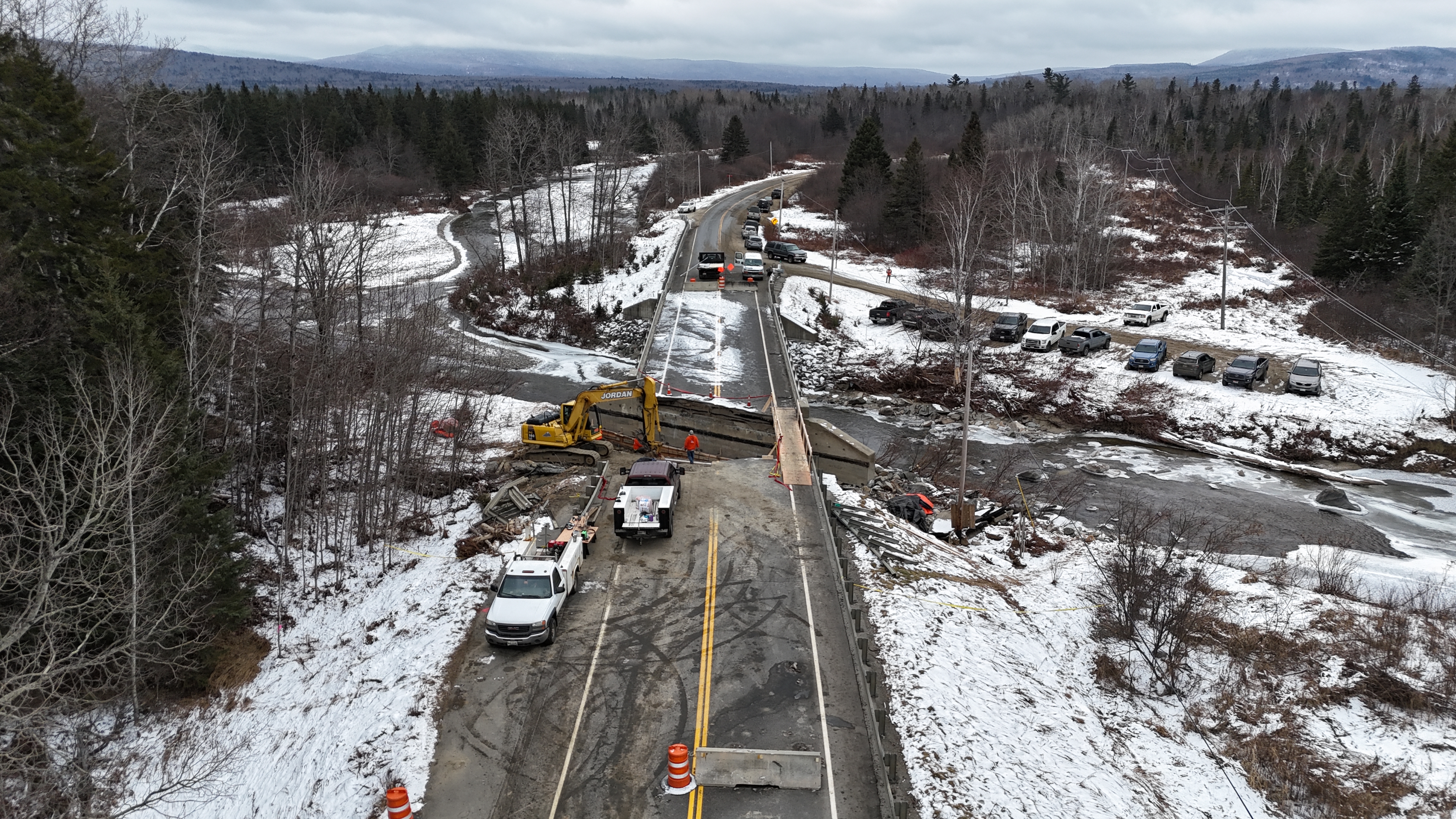AUGUSTA, ME – On the eve of another storm with predicted heavy wind and rain, the widespread wind and flood damage caused by the powerful storm that swept through Maine on December 18 has devastated much of the state’s logging and forest trucking industry, and the effects are ongoing and losses mounting three weeks after the storm, with more potentially on the horizon.
Those are the findings of a survey released by the Professional Logging Contractors (PLC) of the Northeast today. The PLC surveyed its member logging companies in Maine in the wake of the storm and received responses from a quarter of the total, representing every region in Maine.
“In the past three weeks I have spoken with dozens of Maine loggers and truckers and the vast majority have suffered significant and, in some cases, crippling losses due to the effects of the December 18 storm,” Dana Doran, Executive Director of the PLC, said. “Roads and bridges are washed out, structures damaged, timber lots inaccessible and many logging and trucking employees and owners are still also dealing with the aftermath of damages to their own homes. This all came at the end of a very difficult year for the industry and the outlook for the winter harvesting season is not promising.”
The survey included responses from more than 50 logging and forest trucking companies ranging in size from one employee to nearly 100. Estimated average financial losses so far for those companies have topped $51,000 per company, with total losses for the group exceeding $2.6 million. Applying a multiplier for the industry utilized by the University of Maine and the Margaret Chase Smith Policy Center in a recent logging economic impact study for Maine, the total loss to the Maine economy just from the impacts on this group of companies is more than $5.5 million.
Survey responses showed:
∙ More than 90 percent of businesses suffered financial damages or impacts from the storm.
∙ The most common impact was business interruptions or slowdowns, with inability to deliver harvested wood to markets also reported by the majority of respondents. Other losses included increased expenses as a result of the storm, and direct damage to equipment, inventory or structures.
Many of the companies surveyed will be unable to file insurance claims in connection with the losses as the majority of those losses are not covered.
The historic storm knocked out power to more than half of all Mainers, forced the closure of nearly 100 roads and more than 20 bridges, and left some communities cut off by floodwaters for days. Some of the hardest hit areas included Oxford, Franklin, and Kennebec counties.
Examples of areas with extensive logging operations that were particularly hard-hit by the storm included the Rangeley Lakes region, where a washout of the Route 16 bridge connecting Rangeley and Stratton closed the vital trucking route for more than three weeks, forcing an 80-mile detour for wood headed north and south in the region and driving up costs drastically while hindering movement of equipment and employees to work sites.
South of that region, Peru logger Andy Irish of PLC Member Irish Family Logging reported extensive damage to logging roads and woods bridges in his area, and major travel disruptions in the days following the storm due to floodwaters closing routes.
“You couldn’t get out of Dixfield, Mexico or Rumford, on Route 17 the Swift River came over its banks and went right down the road.” Irish said. “It’s starting to get back to normal now, but we had to move jobs, we lost a whole week of trucking. Our spruce goes to Stratton now and we’ve got 40 or 50 loads of spruce sitting in the woods and we can’t go up Route 16 so we’ve got to haul it all the way around and up through Carrabassett, but it’s gone from 40 miles one way to 80.”
Many loggers responding to the survey, including Irish, had already dealt with major rain and flood damage to logging roads early in the summer of 2023. In many cases repairs completed after that round of flooding now must be done again.
On Monday, Doran was among a group of representatives of agricultural stakeholders who met with U.S. Department of Agriculture (USDA) Secretary Tom Vilsack in Portland to discuss the impact of recent storms and warm rainy winters on the state’s farms and the logging industry.
“Keeping loggers and truckers employed is the biggest challenge that we have, and I will tell you there are no programs, federal or state, that help logging businesses through this,” Doran said, pointing to things that could be done such as assisting logging companies with the costs of repairing critical woods infrastructure such as roads, bridges, and culverts, as well as aiding logger efforts to protect water quality from extreme weather events in harvest areas. “Those are things that are going to have to happen in order for contractors to continue to be able to work.”
Maine’s loggers are a vital part of the state’s forest products sector, which is worth an estimated $7.7 billion annually. Logging contributed an estimated $582 million to the state economy in 2021.
Founded by loggers who were concerned about the future of the logging and forest trucking industry, the PLC has grown steadily to become a regional trade association which provides independent logging contractors and truckers in the Northeast a voice in the rapidly changing forest products industry. Board membership consists of only loggers, making it an organization that is run by loggers on behalf of loggers.
 A washout Dec. 18 of the Nash Stream bridge on Maine State Route 16 severed the primary north-south trucking corridor between Rangeley and Stratton, forcing a major and costly detour for logging companies trucking wood through the region.
A washout Dec. 18 of the Nash Stream bridge on Maine State Route 16 severed the primary north-south trucking corridor between Rangeley and Stratton, forcing a major and costly detour for logging companies trucking wood through the region.
